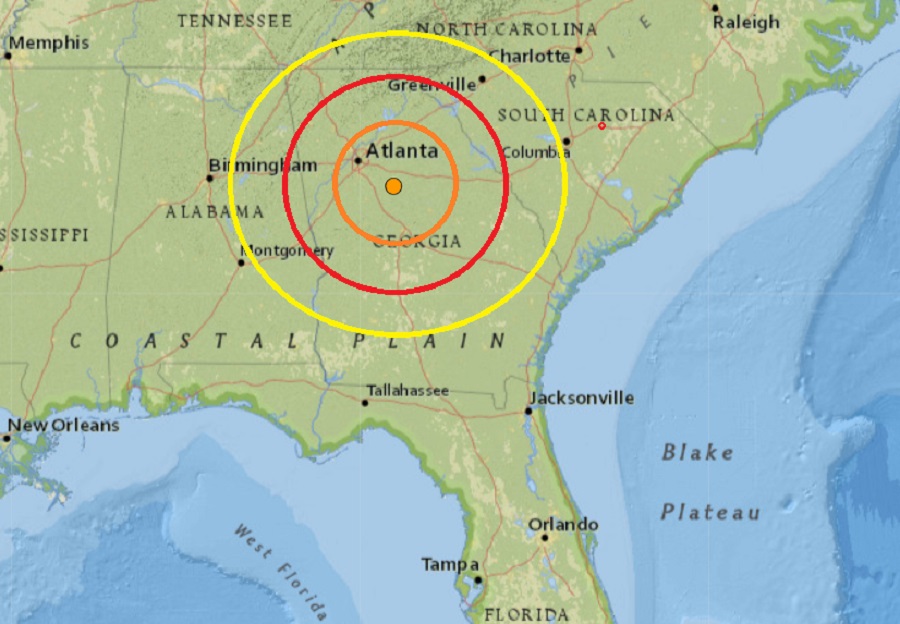
An earthquake struck Georgia tonight, according to USGS, with more than a dozen people using the “Did you feel it?” tool on the USGS website to report feeling it. The epicenter of the quake was southeast of Atlanta, roughly 8.5 miles southwest of Mansfield, Georgia; the depth of the magnitude 2.4 earthquake was shallow at only 1.6 km. The earthquake struck at 9:20 pm local time.
Georgia isn’t typically known for its earthquakes, but they do happen from time to time. On June 18, a magnitude 3.9 earthquake hit, triggering a bulletin from the National Weather Service’s Tsunami Warning Center. That earthquake, centered near Stillmore, was felt throughout the Atlanta metro area as well as southern and eastern Georgia near the Atlantic coast. No extensive damage was reported nor did a tsunami form. The last earthquake within 30 miles of that one with comparable intensity occurred in 2003. That 3.6 magnitude earthquake struck in Cobbtown, Georgia. Before that, there was a 3.7 magnitude event in Hixton which hit in 1976.
Generally, weak earthquakes impact Georgia with no other significant earthquakes occuring in the state over the last year. Two months ago, a 2.1 magnitude event hit Grovetown, Georgia while a 2.2 magnitude event also hit near Harlem, Georgia. Four months ago there was a 1.7 magnitude event in Dalton, where a 2.0 magnitude event also occurred a month earlier. Ten months ago, a 2.1 magnitude event unfolded in both Lincolnton and Lilburn.
An earthquake also struck northern Arkansas early this morning, but that is likely associated with an ongoing swarm at the New Madrid Seismic Zone and not related to this Georgia quake which is more than 500 miles away.
Georgia isn’t the only place to have an unusual earthquake recently: South Carolina has been seismically active since last December, with more than 2 dozen earthquakes impacting the state. Experts are concerned that a large scale earthquake will strike in South Carolina at some point in the future and bring about significant damage and loss of life. While more than 100 years have passed since the last large earthquake, a 2001 study titled “Comprehensive Seismic Risk and Vulnerability Study for the State of South Carolina” confirmed the state is extremely vulnerable to earthquake activity. The study, based on scientific research, provided information about the likely effects of earthquakes on the current population and on modern-day structures and systems, including roadways, bridges, homes, commercial and government buildings, schools, hospitals and water and sewer facilities.